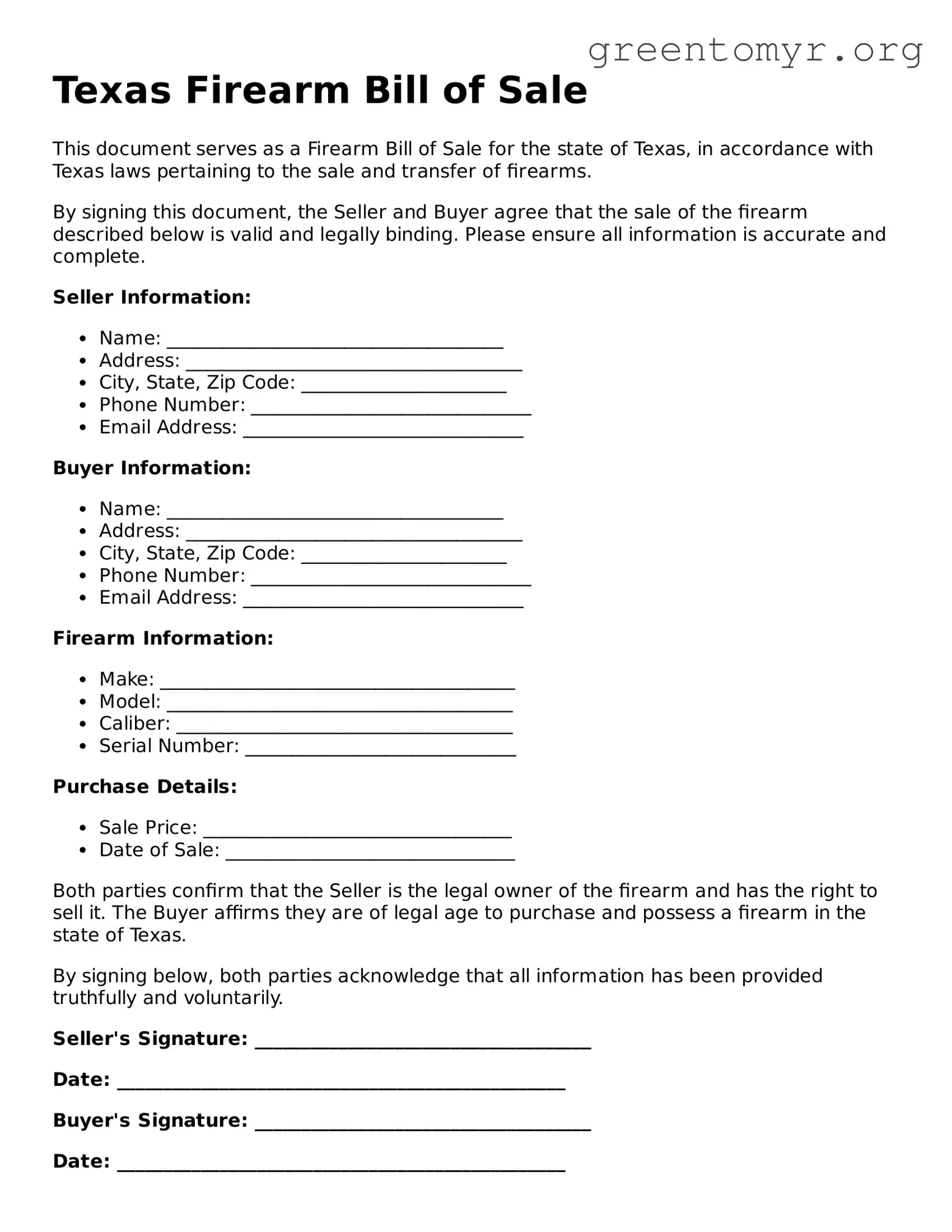Texas Firearm Bill of Sale
This document serves as a Firearm Bill of Sale for the state of Texas, in accordance with Texas laws pertaining to the sale and transfer of firearms.
By signing this document, the Seller and Buyer agree that the sale of the firearm described below is valid and legally binding. Please ensure all information is accurate and complete.
Seller Information:
- Name: ____________________________________
- Address: ____________________________________
- City, State, Zip Code: ______________________
- Phone Number: ______________________________
- Email Address: ______________________________
Buyer Information:
- Name: ____________________________________
- Address: ____________________________________
- City, State, Zip Code: ______________________
- Phone Number: ______________________________
- Email Address: ______________________________
Firearm Information:
- Make: ______________________________________
- Model: _____________________________________
- Caliber: ____________________________________
- Serial Number: _____________________________
Purchase Details:
- Sale Price: _________________________________
- Date of Sale: _______________________________
Both parties confirm that the Seller is the legal owner of the firearm and has the right to sell it. The Buyer affirms they are of legal age to purchase and possess a firearm in the state of Texas.
By signing below, both parties acknowledge that all information has been provided truthfully and voluntarily.
Seller's Signature: ____________________________________
Date: ________________________________________________
Buyer's Signature: ____________________________________
Date: ________________________________________________
